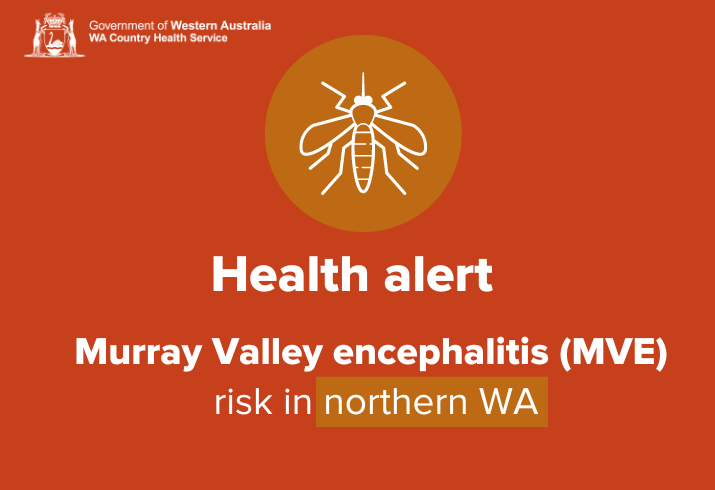Mosquito warning to travellers and community members in northern WA

The following media release has been issued by the Department of Health.
The Department of Health has issued a health alert to protect against mosquito bites, particularly for people living in, or planning to travel to northern regions of Western Australia.
This alert follows an ongoing elevated mosquito-borne disease risk across a wide area of northern Western Australia, particularly in the Pilbara, Kimberley, Gascoyne and Midwest regions. So far in 2024, four cases of Murray Valley encephalitis (MVE) have been reported, including two cases acquired in the Pilbara region who sadly passed away. Department of Health Acting Managing Scientist, Dr Jay Nicholson, said protection against mosquito bites was the best defence against MVE and other mosquito-borne viruses. “We anticipate an increase in travellers to the higher-risk northern regions in coming weeks, and I urge travellers to prepare accordingly,” Dr Nicholson said. “Consider some of the basic steps prior to your travel, such as packing effective repellent and long, loose-fitting clothing for everyone in the family. “Residents and workers are also urged to protect themselves, particularly when spending long periods of time outdoors.” Initial symptoms of MVE include fever, drowsiness, headache, stiff neck, nausea and dizziness. People experiencing these symptoms should seek medical advice as soon as possible. In young children, fever might be the only early sign of infection and parents should see their doctor or local health service urgently if concerned, particularly if their child experiences drowsiness, floppiness, irritability, poor feeding, or general distress. Protect yourself and your family from the risk of mosquito-borne diseases by following these steps: For more information, including further MVE symptoms and mosquito bite prevention tips, visit HealthyWA.Cover up:
Repel:
Clean up:

